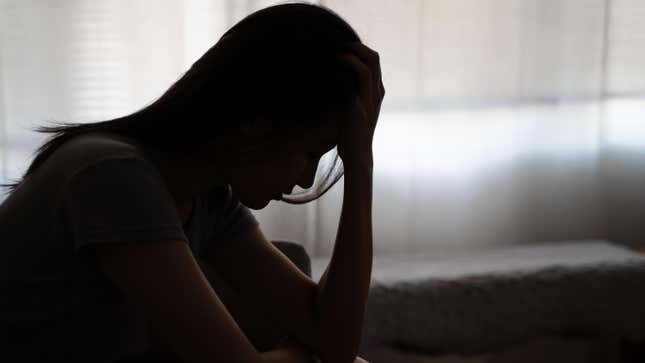There Have Been Tens of Thousands of Rape-Induced Pregnancies Post-Roe
In 14 states that have banned abortion since June 2022, an estimated 519,981 rapes “were associated with 64,565 pregnancies.”


Last summer, the mother of a 13-year-old Mississippi girl who was raped then became pregnant told Time magazine the story of how her daughter was forced to give birth due to the state’s abortion ban. The family wasn’t able to travel out-of-state, and the woman didn’t know that Mississippi’s law has a rape exception—let alone the complex process of seeking out that exception for her child. The gutting story came about a year after it became public that a 10-year-old rape victim from Ohio was forced to travel to Indiana for an abortion, because Ohio’s abortion ban—which has since been blocked in court—didn’t have a rape exception.
According to new research published last week, stories like these are just the tip of the hellish iceberg. In 14 states that have banned abortion since the Supreme Court Dobbs decsion overturned Roe v. Wade in June 2022, an estimated 519,981 rapes “were associated with 64,565 pregnancies.” These estimates draw from available data that track rates of reported and unreported rapes in states with abortion bans, as well as “findings from prior research on rape-related pregnancy rates,” the research states. Of these 64,565 rape-induced pregnancies, “an estimated 5,586 rape-related pregnancies (9%) occurred in states with rape exceptions,” and “58,979 (91%) in states with no exception,” with 26,313 (45%) in Texas.
“Most people will think that these numbers are high—but what stands out to me is that the real numbers are most likely higher given how underreported and under-counted acts of sexual violence are,” Alison Turkos, a survivor and activist at the intersections of reproductive and survivor justice, told Jezebel. A 2016 analysis by the Justice Department estimates that about 80% of rapes and sexual assaults go unreported to police.
That the majority of estimated rape-induced pregnancies occurred in states whose abortion bans lack rape exceptions is striking—but it’s not as if care is accessible to survivors whose states do have rape exceptions: The research also notes that comparing “the 10 or fewer legal abortions per month” in the states that ban abortion with “the large number of estimated rape-related pregnancies” clearly indicates that tens of thousands of rape victims are being denied care—even if their state’s ban has an exception.
-

-

-

-

-

-

-

-

-

-

-

-

-

-

-

-

-

-

-

-

-

-

-

-

-

-

-

-

-

-

-

-

-

-

-

-

-

-

-

-








































